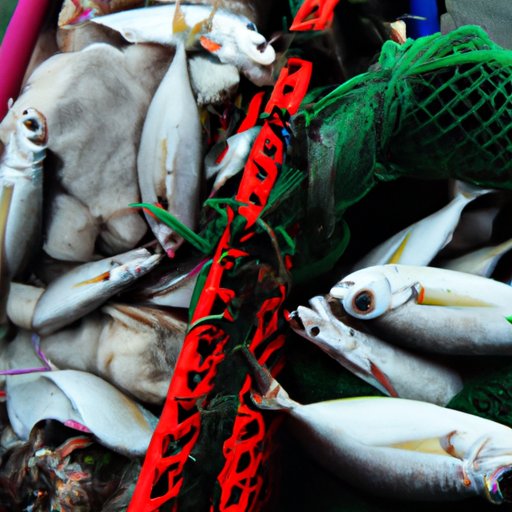Introduction
Fishing is one of the oldest human activities and has been practiced for thousands of years. It is an important source of food, recreation, and economic activity, and it provides us with a connection to nature. However, in recent years, the ethical debate surrounding fishing has intensified as people question whether or not it is cruel.
Examining the Ethical Debate of Fishing: Is it Cruel?
The potential cruelty of fishing is a contentious issue and there are arguments for and against recreational fishing. On one hand, some people argue that fishing inflicts unnecessary suffering on fish, which can lead to death or injury. On the other hand, others contend that as long as fishing is done responsibly and sustainably, it can be an enjoyable and harmless activity.

Investigating the Impact of Fishing on Marine Life
In addition to the ethical debate surrounding fishing, there is also concern about the impact of overfishing on marine life. Overfishing occurs when too many fish are taken from the ocean, which can lead to population declines and reduced genetic diversity. In addition, pollution from boats, oil spills, and plastic waste can have devastating effects on marine ecosystems.

Exploring the Pros and Cons of Recreational Fishing
Recreational fishing has both benefits and risks associated with it. On the positive side, recreational fishing can be a fun and relaxing activity that allows people to connect with nature. It can also provide food and economic opportunities for local communities. However, it can also have negative impacts, such as damaging habitats and introducing non-native species into waterways.

Understanding the Science Behind Fisheries Management
In order to ensure that fishing is done responsibly and sustainably, there are various methods used to manage fisheries. These include setting catch limits, establishing protected areas, and using selective fishing gear. In addition, research is conducted to monitor fish populations and assess the health of ecosystems.
Comparing Traditional Fishing Practices to Modern Methods
Traditional fishing practices differ from modern methods in a number of ways. For example, traditional fishing typically involves smaller boats and less efficient fishing gear. In addition, traditional fishermen often rely on more sustainable practices, such as releasing undersized fish and avoiding sensitive habitats. However, traditional fishing can still have negative impacts, such as the introduction of pollutants into waterways.
Conclusion
The ethical debate surrounding fishing is complex and there are no easy answers. While it is clear that fishing can have negative impacts on marine life, it can also provide important benefits to humans and local communities. To ensure the sustainability of fisheries, it is important to practice responsible fishing techniques and use science-based fisheries management strategies. By doing so, we can ensure that fishing remains an enjoyable and harmless activity.


